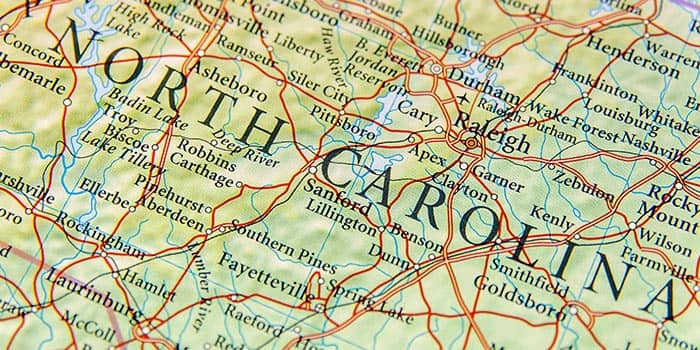May 2018 signified a new era in American sports betting with the repeal of the Professional and Amateur Sports Protection Act (PASPA), triggering an accelerated expansion of sports betting outlets across the United States. This rapid progress was largely driven by the acknowledgement by legislators of the potential benefits of legalised sports betting like tax revenue, support for local teams and curbing illegal operations. Half a decade into the proliferation of betting, today, over 30 US states offer the activity, while a few others are in the legislative process for legalization.
North Carolina may have been slower to adopt mobile sports betting, yet it won’t be the last state doing so. A bill, which foresees the introduction of mobile sports betting services and an expansion of in-person wagering, has been making headway in the legislative circles of the Tar Heel state this year. It’s planned to be introduced at the onset of the ensuing year. The bill has advanced recently when the North Carolina state Senate approved it, calling for the legalisation of betting on horse racing, alongside professional and collegiate sports and other forms thereof.
In a significant milestone for its passage, the General Assembly approved the proposal on Wednesday. The bill passed the House hurdle successfully in a voting of 68 to 45, propelling it closer to its final legislative stage where it will now need the endorsement of North Carolina’s Governor, Roy Cooper. Following Cooper’s approval, a formal date for expanding the state’s sports betting sector will be announced.
Mobile Betting Anticipated to Launch in Early 2024
The legislation fundamentally enhances the scope of sports betting within the state, currently restricted to only three ground-based casinos operated by Tribal groups. With this bill, North Carolina is setting the stage for mobile sports wagering and bigger retail gambling options.
Pertaining to the proposed law, the state’s Lottery Commission will oversee licensing, with the power to grant up to 12 mobile sports betting licenses. The proposed plan nevertheless imposes a condition that eight out of the 12 licenses must be tied to retail sports wagering outlets. This still leaves room for four licenses exclusively for mobile wagering providers without a retail counterpart.
As the proposal has been gaining momentum recently, North Carolina residents might be expected to have the opportunity to engage in legal mobile betting by early 2024. The effective date according to the bill is January 8, 2024. However, the bill stipulates that the Lottery Commission retains the right to alter this date within 12 months of the bill becoming law. In essence, if all goes according to plan and Governor Cooper approves this bill, North Carolina sports enthusiasts may have an opportunity to place legal bets before the next Super Bowl.
The proposed legislation aims for an 18% tax on gross gaming revenue from sports betting operators. Preliminary forecasts suggest that the first three years of operation could generate around $100 million in tax revenue, from bets potentially exceeding $6.6 billion. Similar to its counterparts in other states, North Carolina has plans to allocate this tax revenue towards sports programs support, funding gambling education and addiction initiatives, amongst other programs.







